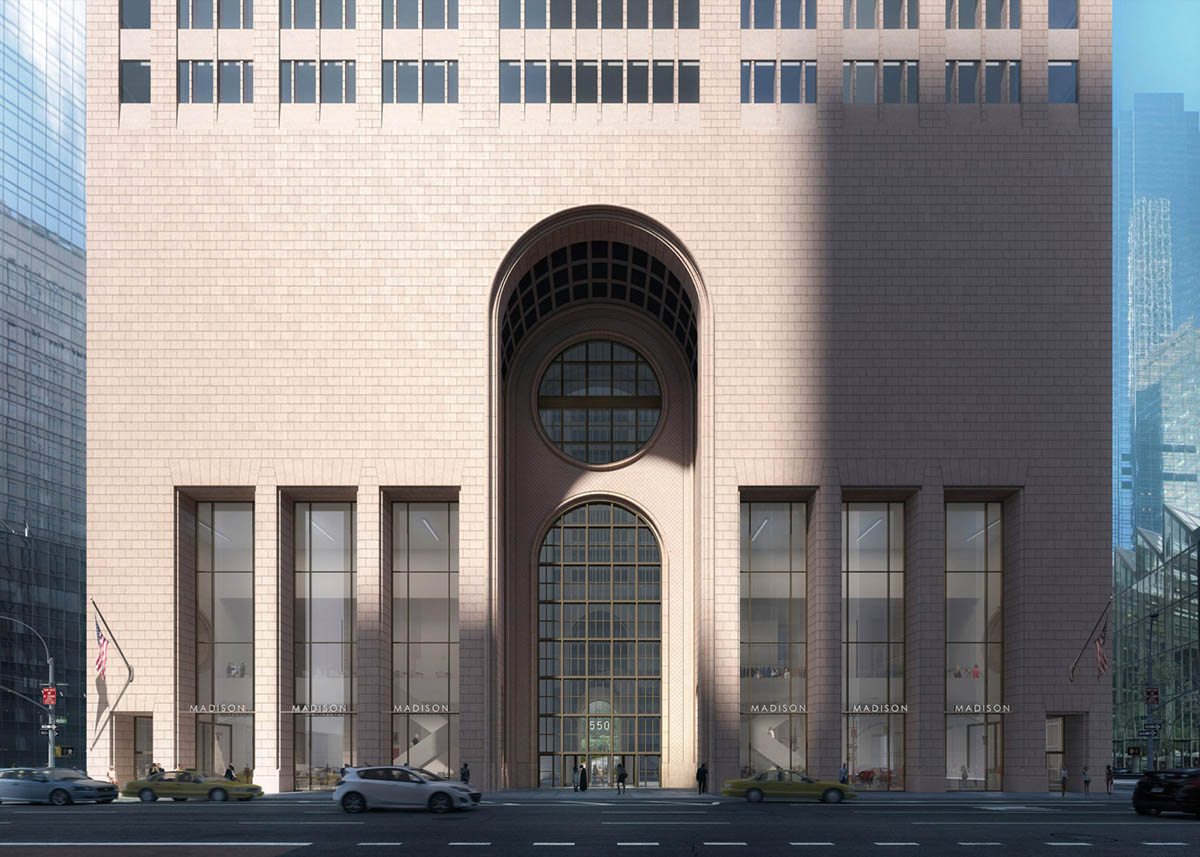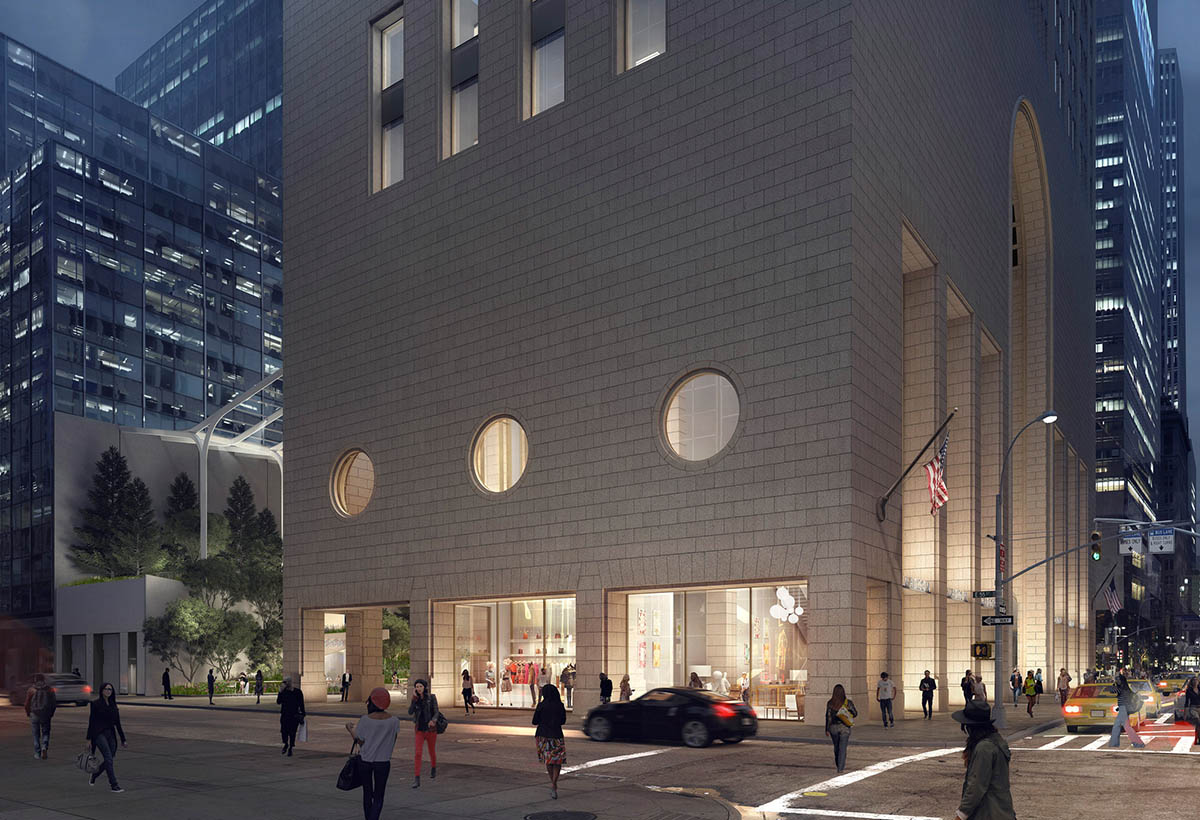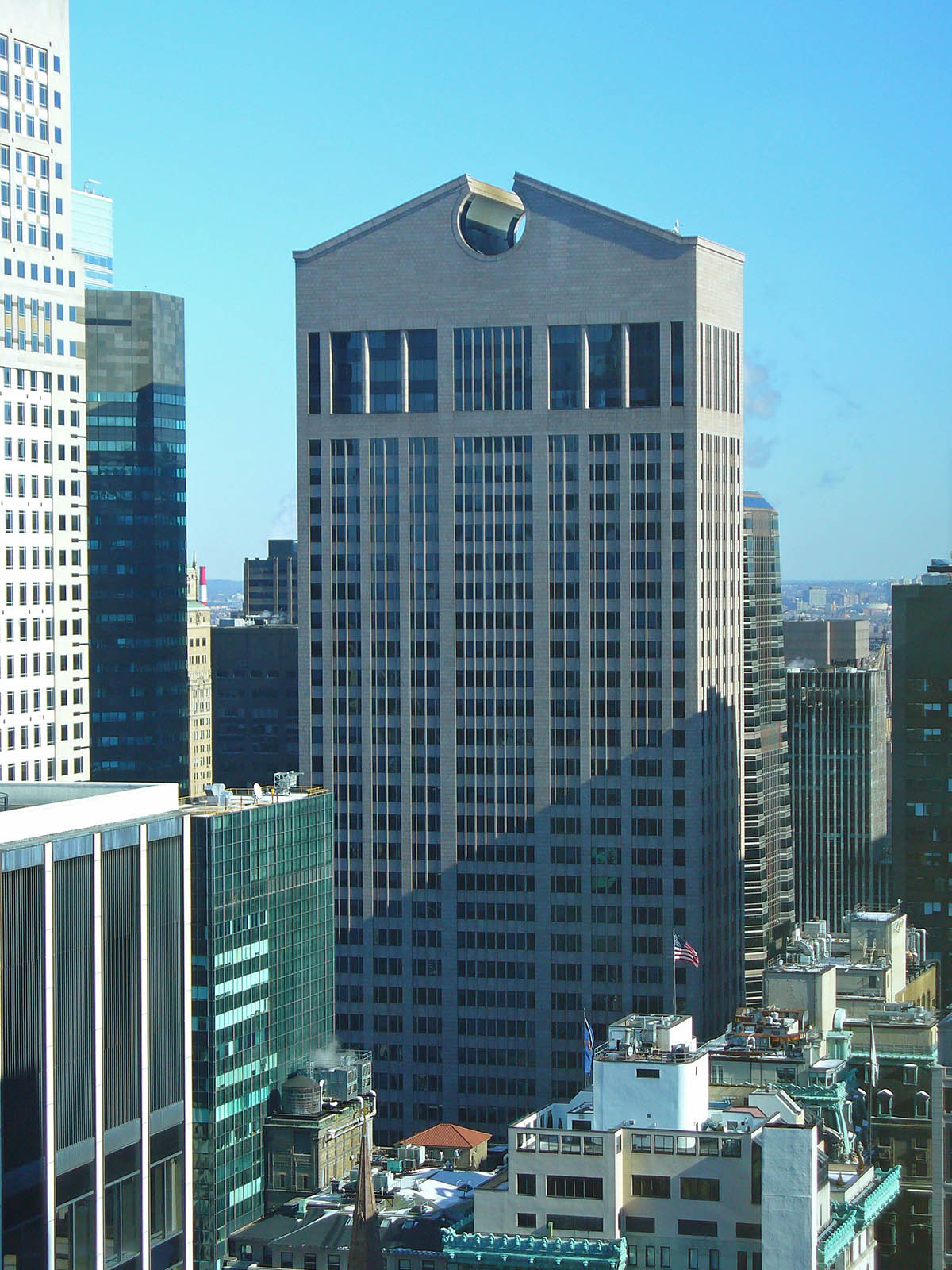Submitted by WA Contents
NYC Landmarks Preservation Commission Approves Snøhetta's revised scheme for AT&T Building
United States Architecture News - Feb 14, 2019 - 02:02 14252 views

The New York City Landmarks Preservation Commission (LPC) has approved Snøhetta's revised scheme for Philip Johnson's AT&T Building, which previously faced with resistance by architects and preservationists as the proposed scheme damages the spirit of original design.
After Snøhetta revealing the revised scheme in December last year, the City Council has now given the go ahead for the renovation of the postmodern icon - which is called 550 Madison - the landmark commercial tower is located in East Midtown.
Officially announced at 550 Madison's website, the announcement stated that modifications and exterior work will begin and it is set to be reopened in 2020.

In July 2018, the building received "individual landmark" status by New York's Landmarks Preservation Commission, which stipulated the preservation of the exterior of the iconic tower covered by clad with pinkish-gray granite and crowned by a colossal broken pediment. It was considered as "a feature that sets it dramatically apart from other skyscrapers in midtown."
In Snøhetta’s updated design, the images show that the firm will preserve and revitalize the landmark tower, undo past renovations that compromised the original design intent, and reconceive 550 Madison’s public spaces.
The firm keeps the tower’s exterior 94% unchanged. Further returning the building’s façade to the spirit of Johnson and Burgee’s original design, new clear storefront windows will allow people to see through the ground-floor retail and to read the full volume of the dramatic piers at the building’s base.
"All exterior-related work for the building will continue to be subject to review and approval by the Landmarks Preservation Commission," stated in a press release by 550 Madison.
Led by the Olayan Group, with development partners RXR Realty and Chelsfield, the team has worked with architect and landscape architect Snøhetta closely to preserve the iconic tower, while providing modern upgrades to support a 21st Century workforce and revitalize the surrounding public space.
The studio reimagined public open space that will finally deliver on the true public amenity that Philip Johnson envisioned. "The East Midtown community sits last among Manhattan community districts with regards to the amount of public open space it offers," the firm added.

Through Snøhetta’s design, the renovated public open space at 550 Madison will increase by 50%, creating a visual and sensory retreat in the heart of East Midtown.
The upper portions of the existing four-story annex, the altered glass roof, and side street enclosures that were added during the 1990s will be removed, creating an expansive, open and inviting public garden.
Protected by a new canopy inspired by Johnson’s design vocabulary, the open space will include 42 new trees, eight bike racks, and seven public restrooms. It will expand the seating available to accommodate more than 260 people. This will become the largest privately-owned covered pedestrian space within a five-minute walk of the building.
550 Madison is an exceptionally well-built structure with many highly desirable features: 14-foot high ceilings; large, column-free floor plates; north, south, east, and west-facing views of New York City; river to river sightlines; and offices overlooking Central Park.

With thoughtful interior modifications and infrastructure upgrades led by the construction and engineering team, the building will be in a position to accommodate a variety of modern office and retail tenants with high-quality amenities, bringing significant public benefits to East Midtown consistent with the goals of the City’s recent East Midtown rezoning. Tenants will be able to start moving in in 2020.
Regarding infrastructural upgrades, these moderations will make the building a model of sustainable design, targeting LEED Platinum, Wired, and WELL certifications.

Philip Johnson's AT&T Corporate Headquarters Building in Manhattan. Image © David Shankbone
"Sustainable and healthy building materials will be sourced throughout the building. The upgrades will achieve a minimum 30% reduction in water use and an energy usage target 10% below current New York City energy code," explained in a press release.
All images courtesy of Snøhetta unless otherwise stated.
> via 550 Madison
